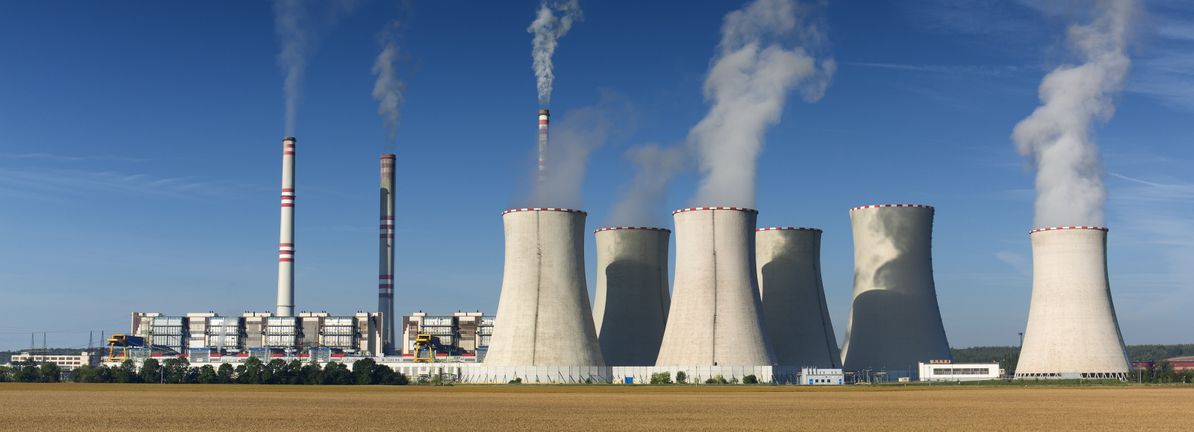Power Play: Iraq Strikes Major Deals with US Firms to Supercharge National Energy Infrastructure
Companies
2025-04-09 20:46:59Content

In a strategic move to combat its chronic electricity shortages, Iraq has secured promising partnerships with two prominent American companies. The agreements, which aim to significantly boost the country's power generation capabilities, will add an impressive 27 gigawatts to Iraq's electrical infrastructure. This landmark development represents a critical step towards addressing the nation's growing energy demands and modernizing its power sector.
By collaborating with these American firms, Iraq signals its commitment to overcoming long-standing challenges in electricity production. The non-binding agreements offer a potential pathway to dramatically improve power reliability and support the country's economic development. As electricity consumption continues to rise, these new partnerships could prove transformative for Iraq's energy landscape, providing much-needed relief to businesses and citizens alike.
Iraq's Power Revolution: A Transformative Leap in Electricity Infrastructure
In the dynamic landscape of global energy development, Iraq stands at a critical crossroads of technological advancement and infrastructural transformation. The nation's ambitious electrical expansion strategy represents a pivotal moment in addressing its growing energy demands, signaling a profound commitment to modernizing its power generation capabilities and meeting the evolving needs of its rapidly developing economy.Powering Progress: Iraq's Strategic Energy Expansion Unveiled
The Electrical Infrastructure Challenge
Iraq's electrical grid has long struggled with significant capacity limitations, creating substantial challenges for economic development and quality of life. Decades of conflict, economic instability, and underinvestment have left the country's power infrastructure fragmented and inefficient. The current electrical system cannot adequately support the nation's growing population, industrial sectors, and emerging technological ecosystems. The persistent electricity shortages have been a critical bottleneck, hindering economic productivity and social development. Businesses operate with intermittent power supply, residential areas experience frequent blackouts, and critical infrastructure remains vulnerable to energy instability. This systemic challenge demands a comprehensive and innovative approach to power generation and distribution.Strategic Partnerships and Technological Innovation
By engaging with prominent American energy corporations, Iraq is strategically positioning itself to leverage cutting-edge technological solutions. These non-binding agreements represent more than mere contractual arrangements; they symbolize a transformative approach to national energy infrastructure. The proposed 27-gigawatt expansion is not just a numerical target but a holistic strategy for technological integration. These partnerships promise to introduce advanced power generation technologies, sustainable infrastructure development, and knowledge transfer mechanisms that could fundamentally reshape Iraq's energy landscape. The collaboration signals a forward-looking approach, emphasizing technological innovation over traditional infrastructure development models.Economic and Geopolitical Implications
The electrical infrastructure expansion carries profound economic and geopolitical significance. By addressing energy deficits, Iraq can create a more attractive environment for foreign investment, support industrial diversification, and reduce dependency on external energy sources. The project represents a critical step towards economic resilience and technological self-sufficiency. Moreover, these strategic investments demonstrate Iraq's commitment to modernization and international collaboration. The partnerships with American companies underscore a diplomatic approach to technological development, potentially opening channels for broader economic and technological exchanges.Technological and Environmental Considerations
The proposed power generation expansion must be viewed through the lens of environmental sustainability and technological efficiency. Modern power generation technologies offer opportunities for reduced carbon emissions, increased energy efficiency, and integration of renewable energy components. Iraq's energy strategy must balance immediate infrastructure needs with long-term environmental considerations. This requires sophisticated technological solutions that can adapt to evolving global energy standards while meeting the country's immediate power generation requirements.Future Outlook and Potential Challenges
While the proposed 27-gigawatt expansion represents a significant milestone, numerous implementation challenges remain. Technical complexities, funding mechanisms, geopolitical uncertainties, and infrastructure limitations will test the project's successful execution. Successful implementation will require robust project management, transparent governance, continuous technological adaptation, and strong international collaboration. The project's success could serve as a potential model for other developing nations seeking to modernize their electrical infrastructure through strategic international partnerships.RELATED NEWS
Companies

Trade Tensions Bite: German Businesses in China Reel from Tariff Tsunami
2025-04-23 13:00:09
Companies

Price War Ahead: Cramer Warns Consumer Brands to Slash Prices Before Tariff Tsunami
2025-04-16 23:16:13
Companies

Silicon Valley's High-Stakes Balancing Act: Navigating the Trump Tech Terrain
2025-05-03 13:30:53





